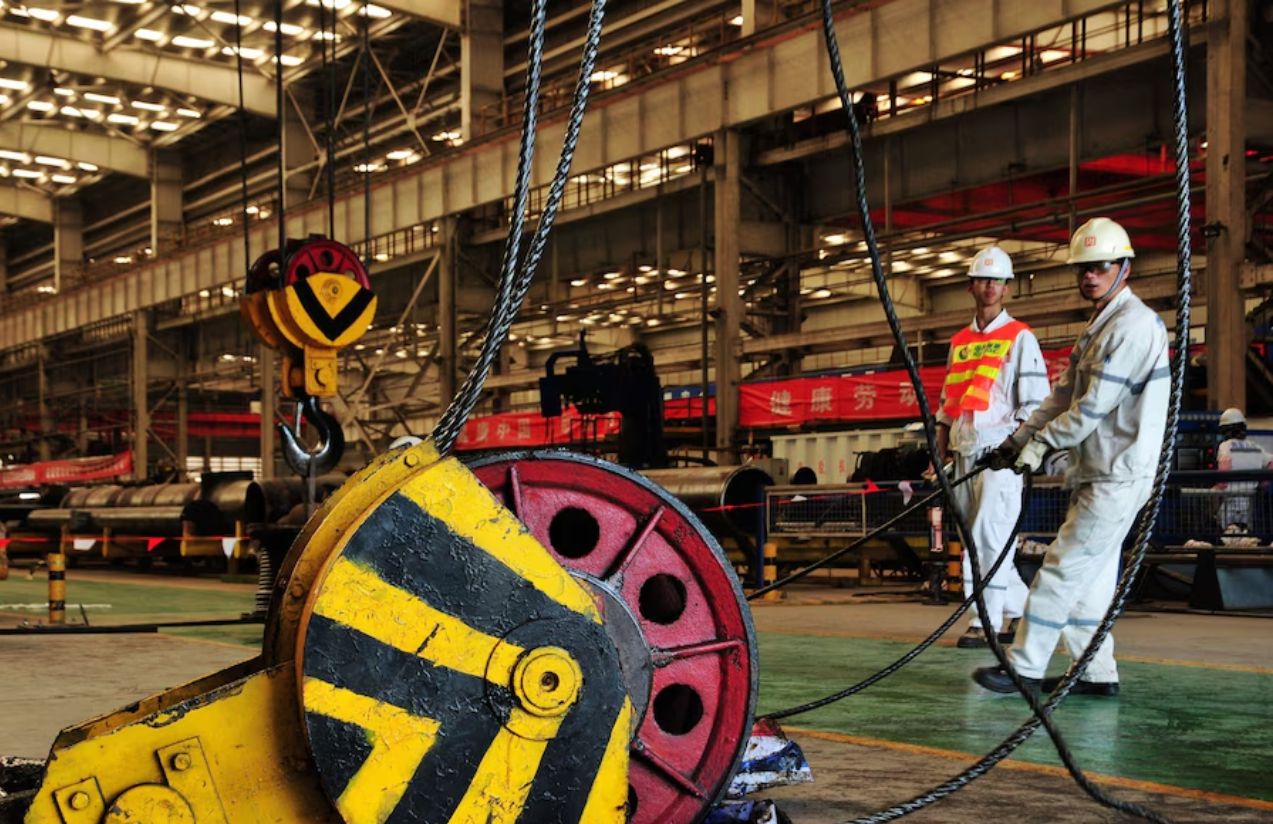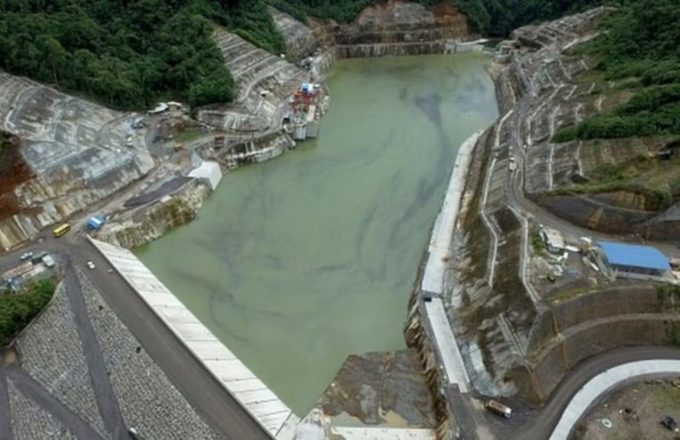China’s manufacturing activity contracted again in June, marking the third straight month below the threshold that separates growth from contraction, according to official data released Monday by the National Bureau of Statistics (NBS). The Purchasing Managers’ Index (PMI) stood at 49.7 points—slightly above May’s 49.5 but still under the 50-point mark that indicates expansion.
Although the figure slightly exceeded the expectations of some analysts, the manufacturing sector continues to show signs of persistent weakness. The modest uptick was partly attributed to the temporary delay in new U.S. tariffs announced by President Donald Trump in early May. The postponement, which expires on July 9, prompted certain industries to accelerate export operations, creating a short-term boost in activity.
Among the five sub-indices that make up the manufacturing PMI, only production, new orders, and delivery times remained in expansion territory. In contrast, raw material inventory and employment indices stayed in contraction, highlighting ongoing challenges in sourcing inputs and hiring labor.
NBS spokesperson Zhao Qinghe sought to put an optimistic spin on the report, citing a so-called recovery in demand in sectors such as food processing and specialized machinery. Still, he acknowledged that market activity remains sluggish in key areas like non-ferrous metals and construction materials.
Conditions outside the industrial sector showed little improvement. The non-manufacturing PMI—which covers services and construction—rose marginally from 50.3 in May to 50.5 in June. The gain was almost entirely driven by the construction sector, which climbed from 51 to 52.8, while services—one of China’s slowest-recovering segments since the pandemic—remained nearly stagnant at 50.1.
Despite these signs of fragility, the Chinese government continues to project an image of stability. However, independent analysts and private sector sources warn of a steady decline in business confidence, strained by heavy state intervention, tech-sector crackdowns, and growing trade tensions with the West.
“The rebound is largely due to anticipation effects following the tariff delay. It doesn’t reflect a structural improvement in the economy,” said Marcel Thieliant, an analyst at Capital Economics. “The modest rise in output shows that companies are not capitalizing on the trade truce in any sustained way,” he added.
President Trump, speaking to Fox News, emphasized that he does not plan to extend the 90-day tariff reprieve, warning that “China will be paying a lot of tariffs” and reiterating that the U.S. trade deficit with China is “unacceptable.”
While the tariff pause allowed major Chinese exporters to frontload shipments, small and medium-sized enterprises were left out, continuing to face production declines and financial constraints. Hiring also declined in both the manufacturing and service sectors.
Signs of slowdown are emerging elsewhere in Asia as well. In Japan, industrial production grew just 0.5% in May—well below the 3.5% forecast. In South Korea, overall industrial output fell 2.9% year-on-year, with significant drops in the automotive and tech sectors.
Despite Beijing’s efforts to present a controlled outlook, the data reveal an economy increasingly reliant on short-term policy moves and lacking signs of sustained recovery. Internal structural strains, combined with external pressures, continue to limit the Chinese government’s ability to generate stable, long-term growth.




















